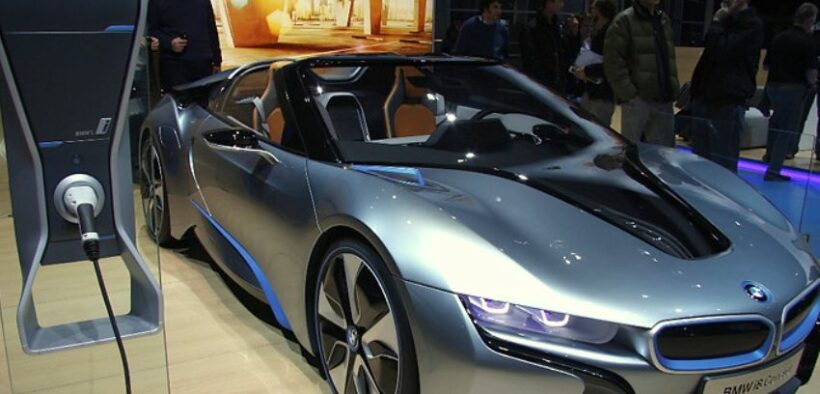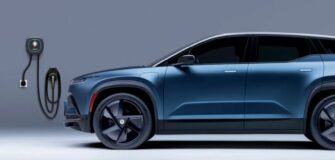Which Electric Car is Right for You? A Look at the Different Types

Electric vehicles (EVs) have been gaining remarkable popularity worldwide due to their environmentally friendly and cost-effective features. As India moves towards embracing a more sustainable future, it’s essential to comprehend the various types of electric cars available. In this comprehensive guide, we will delve into the world of electric cars, exploring their types, advantages, and why they serve as a compelling alternative to traditional gasoline-powered vehicles.
1. Battery Electric Vehicles (BEVs)
Battery Electric Vehicles, commonly referred to as BEVs, are exclusively powered by electricity. These cars rely on a substantial battery pack to store energy, which is then used to propel the vehicle. Here’s what you need to know about BEVs:
Advantages of BEVs:
- Zero emissions, making them exceptionally eco-friendly.
- Lower operating costs compared to traditional gasoline-powered vehicles.
- Impressive acceleration and a remarkably quiet driving experience.
Prominent BEV Models
Some notable BEV models in the market include the Tesla Model S, Nissan Leaf, and Chevrolet Bolt EV.
- Plug-in Hybrid Electric Cars (PHEVs)
Plug-in Hybrid Electric Cars, or PHEVs, blend an electric motor with an internal combustion engine. These vehicles can operate on electricity alone for shorter distances. Once the battery is depleted, the combustion engine takes over. Key details about PHEVs:
How PHEVs Operate:
- Equipped with a larger battery pack than regular hybrids for an extended electric-only range.
- Switches to the internal combustion engine when the battery charge is exhausted.
Advantages of PHEVs:
- Greater flexibility, relying on the combustion engine for longer journeys.
- A transitional choice for those not yet ready to fully embrace electric vehicles.
Well-Known PHEV Models
Popular plug-in hybrid electric cars include the Toyota Prius Prime, BMW i3 REx, and Mitsubishi Outlander PHEV.
- Hybrid Electric Cars
Hybrid electric cars combine an internal combustion engine with an electric motor. The electric motor assists the engine during acceleration and deceleration, resulting in improved fuel efficiency. Here’s what you should know about hybrid electric cars:
Features of Hybrid Cars:
- Regenerative braking, which recharges the battery while driving.
- An electric motor provides additional power during acceleration.
Advantages of Hybrid Cars:
- Enhanced fuel efficiency and lower emissions compared to conventional gasoline cars.
- Available in various sizes and models to suit diverse driving needs.
Prominent Hybrid Car Models
Noteworthy hybrid electric cars include the Toyota Prius, Honda Insight, and Ford Fusion Hybrid.
- Fuel Cell Electric Cars
Fuel Cell Electric Cars, also known as hydrogen fuel cell vehicles, employ hydrogen gas and oxygen to generate electricity. This electricity powers an electric motor, propelling the vehicle. Here’s what you need to know about fuel-cell electric cars:
Fuel Cell Technology:
- A stack of fuel cells converts hydrogen into electricity.
- The only byproduct is water vapor, resulting in zero emissions.
Advantages of Fuel Cell Cars:
- Faster refueling times in comparison to battery electric vehicles.
- Longer driving range, suitable for long-distance travel.
Notable Fuel Cell Car Models
While fuel cell cars are still relatively new, notable models include the Toyota Mirai, Hyundai Nexo, and Honda Clarity Fuel Cell.
Pros and Cons of Electric Cars
Every technology has its advantages and disadvantages. Here are some key points to consider:
Advantages of Electric Cars:
- Significantly reduce greenhouse gas emissions, contributing to a cleaner environment.
- Lower operating costs, as electricity is generally cheaper than gasoline.
- Smooth and quiet driving experience.
Challenges of Electric Cars:
- Range anxiety, or the fear of running out of battery charge.
- Charging infrastructure requires further development for widespread adoption.
- The initial cost of electric vehicles can be higher than traditional cars.
Electric cars have revolutionized the automotive industry by offering sustainable and cost-effective alternatives to traditional gasoline-powered vehicles. By understanding the different types of electric cars, their benefits, and considerations for purchase, you can make an informed decision that aligns with your driving needs and sustainability goals. Embrace the future of transportation and contribute to a cleaner and greener world.









